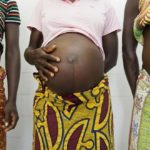AN international trial found that a once-a-day antiretroviral medication for kids with HIV is not only cheap and easy to take but also better at suppressing HIV than standard treatments.
A recent study said that in 3- to 18-year-olds, dolutegravir-based regimens reduced the odds of treatment failure by about 40% compared to standard treatments.
“Our findings provide strong evidence for the global rollout of dolutegravir for children with HIV,” said Dr Diana Gibb, a professor of epidemiology at University College London and a principal investigator in the ODYSSEY trial.
She noted that medical treatments for children often lag well behind those of adults because different formulations and studies are needed.
“With the evidence from ODYSSEY, which used simplified dosing, this treatment gap has been reduced and we hope that countries can quickly scale up children’s access to treatment globally,” Gibb said in a university news release.
The trial included 700 children from 29 clinical centres in Africa, Europe and Asia. They were randomly given standard anti-HIV drugs or dolutegravir, then followed for at least two years.
Dolutegravir-based regimens are already widely used to treat adults. In 3- to 18-year-olds, they reduced the odds of treatment failure by about 40% compared to standard treatments. Dolutegravir inhibits an enzyme that the AIDS-causing virus needs in order to replicate.
The trial findings prompted the World Health Organisation (WHO) to recommend dolutegravir-based treatment for kids.
“About 1.8 million children live with HIV but they have had limited treatment options, with medicines that taste unpalatable, that need to be taken twice a day, or that come in large pills that are difficult to swallow,” said lead author Dr Anna Turkova, a clinical principal research fellow at University College London.
“Dolutegravir is given in small tablets usually once a day and the baby pills can be dispersed in water, meaning it’s a lot easier for young children to take,” she said in the release. “This is important in encouraging uptake of the treatment and adherence to it over many years.”
Turkova noted that only about half of children with HIV are now receiving treatment and those who are not treated face high risks of impaired immunity and worsening health.
Most participants in the trial were based in sub-Saharan Africa, where most children with HIV live.
“Simplifying the dosing is crucial. Older children being able to take the same tablets as adults immediately open access to dolutegravir for the majority of children living with HIV. It greatly simplifies procurement for national health systems in low- and middle-income countries and lowers costs,” said Dr Cissy Kityo, from the Joint Clinical Research Center in Uganda, the country with the most children participating in ODYSSEY.
About 14 per cent of those receiving dolutegravir experienced treatment failure over two years compared to 22 per cent of kids receiving standard treatment, the trial found.
YOU SHOULD NOT MISS THESE HEADLINES FROM NIGERIAN TRIBUNE
We Have Not Had Water Supply In Months ― Abeokuta Residents
In spite of the huge investment in the water sector by the government and international organisations, water scarcity has grown to become a perennial nightmare for residents of Abeokuta, the Ogun State capital. This report x-rays the lives and experiences of residents in getting clean, potable and affordable water amidst the surge of COVID-19 cases in the state.






